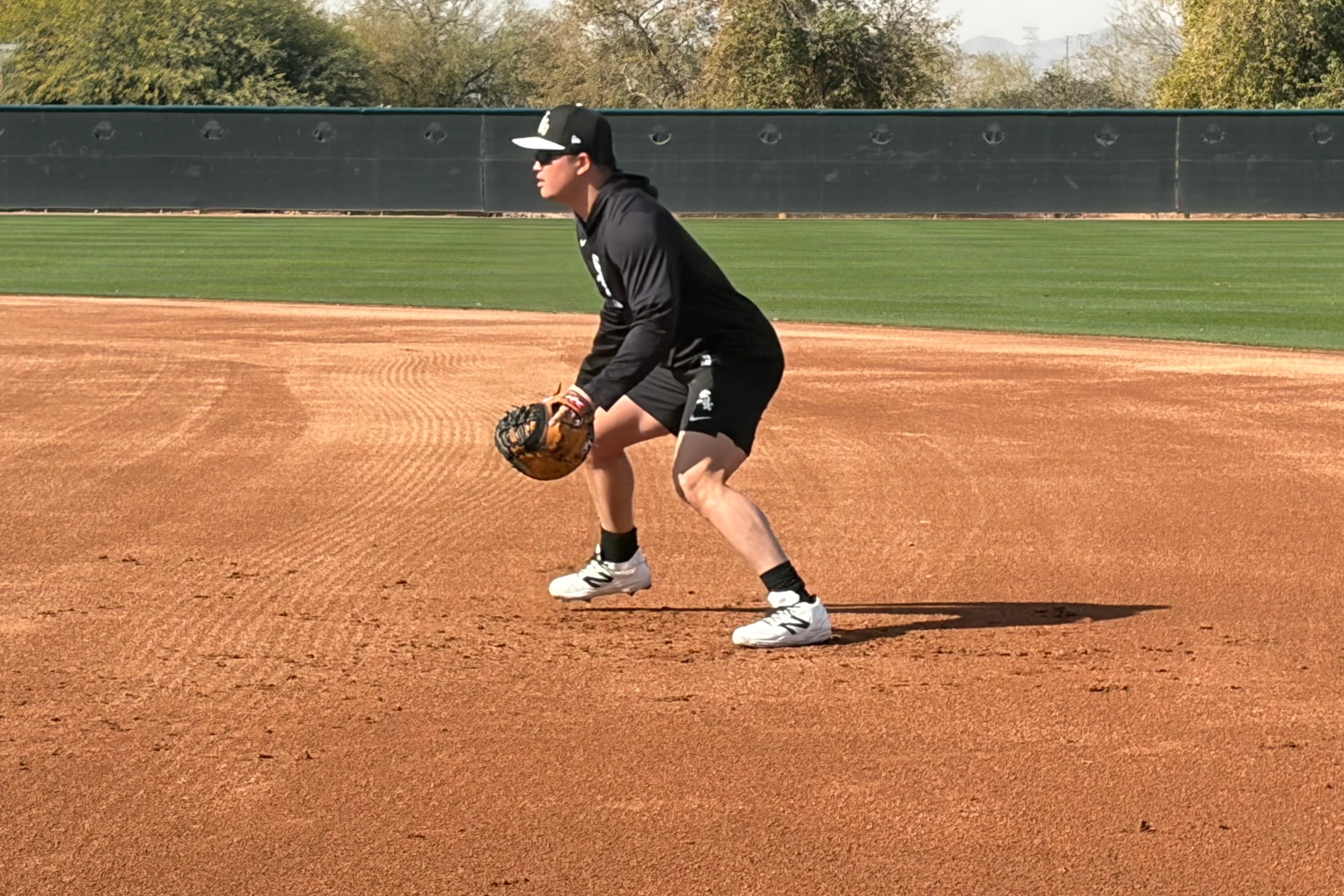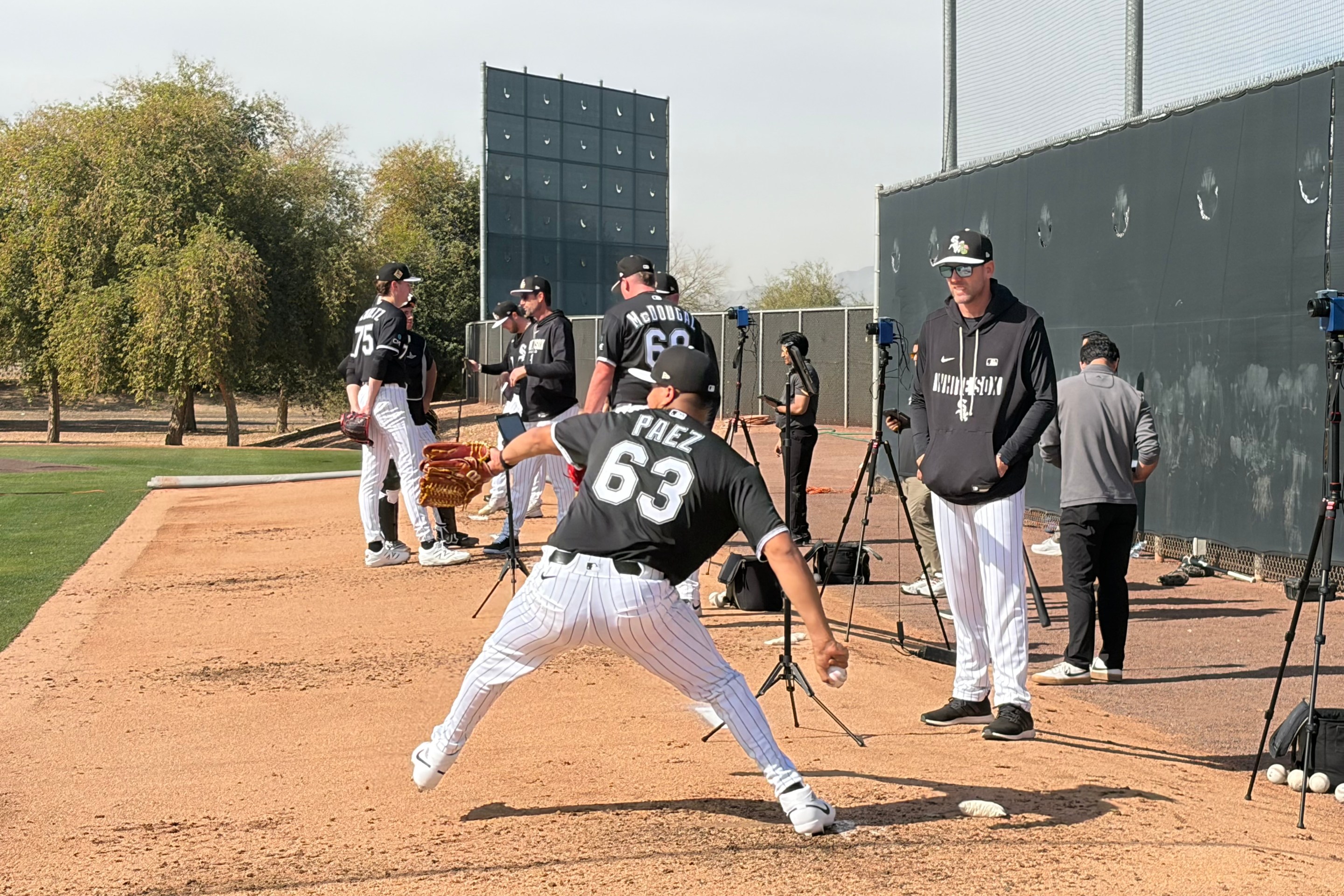If you can't wait until my review of the White Sox's worst losses of the season coming sometime next month, you can get a head start in your self-hate because James Fegan provided his own journey of the season's darkest moments.
Fegan's article is a reminder not just of all the ways they went wrong, but how multiple signs of distress appeared in the same game and challenged for the leading takeaway. It's almost like an episode of Police Squad, 30 Rock or Arrested Development, where the joke density is so high that it rewards multiple viewings. For instance, the game that inspired this passage ...
Maybe an analysis of this disaster piece should focus more on that fifth inning where Jake Burger clanked a backhand attempt to extend the frame, Dylan Cease doubled up on changeups (his worst pitch) to Freddie Freeman for a two-run double, and was allowed to throw 40 pitches as a 4-0 lead turned into a 6-4 deficit. [...]
And after the game, the distressing part of discussing how the inning unraveled on Cease was that La Russa could not pivot his focus to comprehend that he was being questioned on the process that led to a young starter exhausting 40 pitches in an inning that ended his outing anyway. He only assessed it in terms of whether each successive batter had produced a result that blatantly demonstrated that Cease was ineffective, which at best was a demonstration of his dedication to letting his starting pitchers die on their swords.
“The way I look at it too, he’s pitching, it’s his inning,” said La Russa, before revealing that qualifying for the win weighed into Cease’s usage. “(If) we escaped that, (he’s) pitcher of record on the good side.”
... is the same game as the first of Tony La Russa's two intentional walks on a 1-2 count.
A couple of key differences: These White Sox weren't trying to be funny, and nobody will be rewarded for watching these games again.
Spare Parts
At the top of Monday's podcast, I talked about how little I care that the Cleveland Guardians won the Central, mostly because the White Sox deserved to be embarrassed. I said that before seeing the footage of the Cleveland Guardians' clubhouse festivities, which included a profane chant about the White Sox, and a random "Fire Tony!" And ... yeah, it still doesn't really register. From their lips to God's ears on the latter one, really.
The first season of an expanded postseason has resulted in no late-season races of note. With more than a week remaining in the season, all six American League postseason teams are effectively set, as the Tampa Bay Rays have the AL's lowest postseason probability among the contenders at 99.6 percent. In the National League, the Brewers (21.6 percent) have a chance at slipping in if the Padres (91.9) or Phillies (86.6) slip up, but without tie-breaking games, the only tension stems from which team gets home field, and that doesn't register as compelling to me, especially since ...
... home games in Toronto won't pose any kind of unique challenge for visiting teams anymore.
Had Byron Buxton had knee surgery when he knew he needed surgery, his walk-off against Liam Hendriks wouldn't have happened. Alas.
If Lucas Giolito were still worth an extension, Luis Castillo's case would be another one that might reflect an average annual value to work with. Alas.
Rosner is The New Yorker's food writer, but the discussion about the pluses and pitfalls of connoisseurship applies to discussing baseball.
On one hand, when a conversation comes down to “science” or “facts” — which is what a lot of these connoisseurship conversations are — it comes down to things like “Where was the tuna caught? What time of year was it? How fatty was it? What’s the protein-to-fat ratio?” These things often come down to questions of biology, ecology, chemistry, mathematical ratios, they’re very much scientific-method questions. And so in that respect, you can have access to facts, you can synthesize and analyze information. Regardless of what your background might be, it’s that idea that science doesn’t care who you are.
But on the other hand, questions of taste or connoisseurship are in many cases “subjective facts” — which I know is an oxymoron. And expecting expertise in a reader, and expecting expertise in the writer, can be very off-putting. In a general-interest publication, or if it’s in something that in all other respects is being pitched at me on my level, then I can find that very alienating and feel like this isn’t a community that I’m allowed to participate in.
So I think the problem with expertise or connoisseurship, or whatever we want to call it, itself becoming a cultural trend is that there’s no room in that for the on-ramp to expertise.






